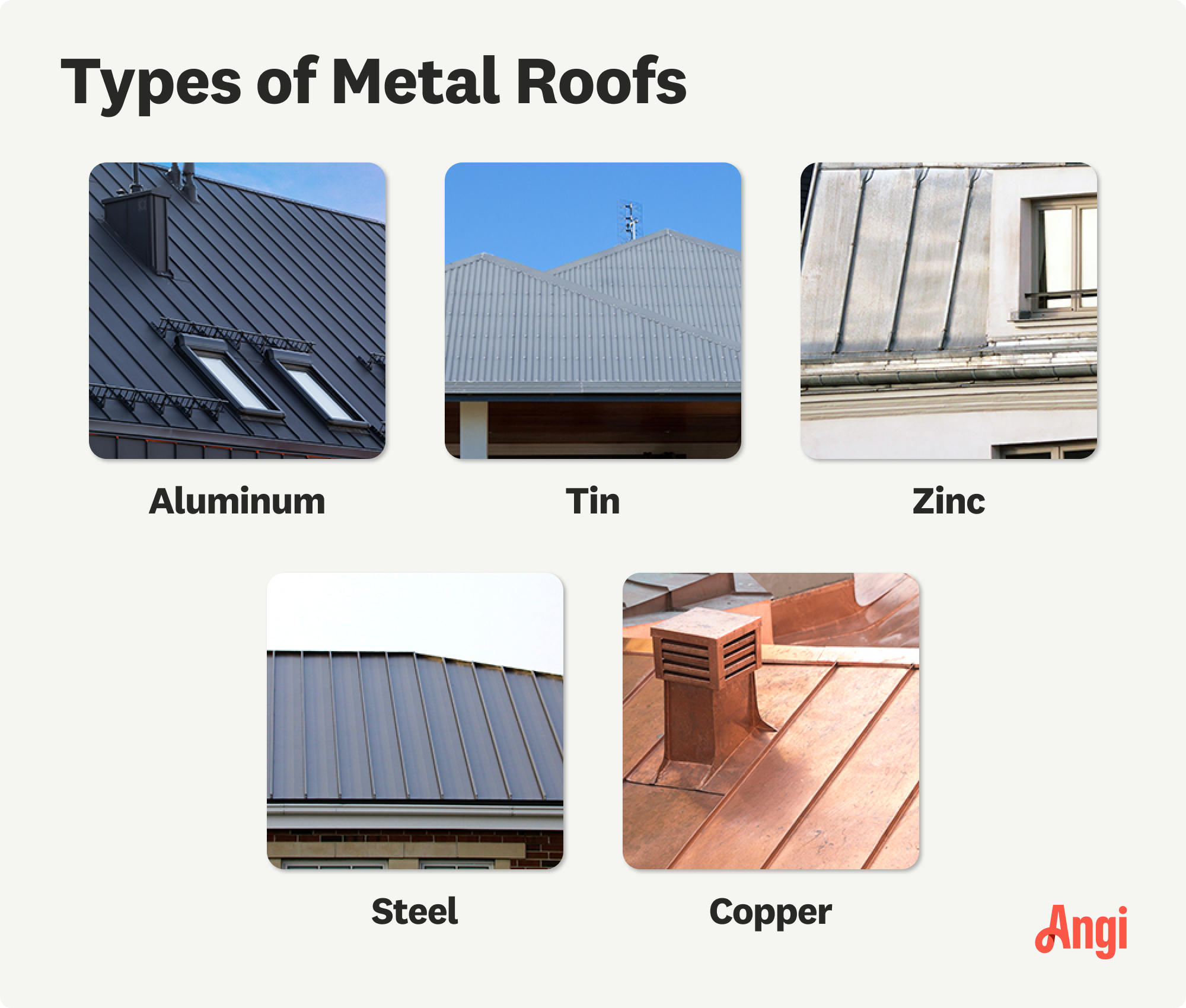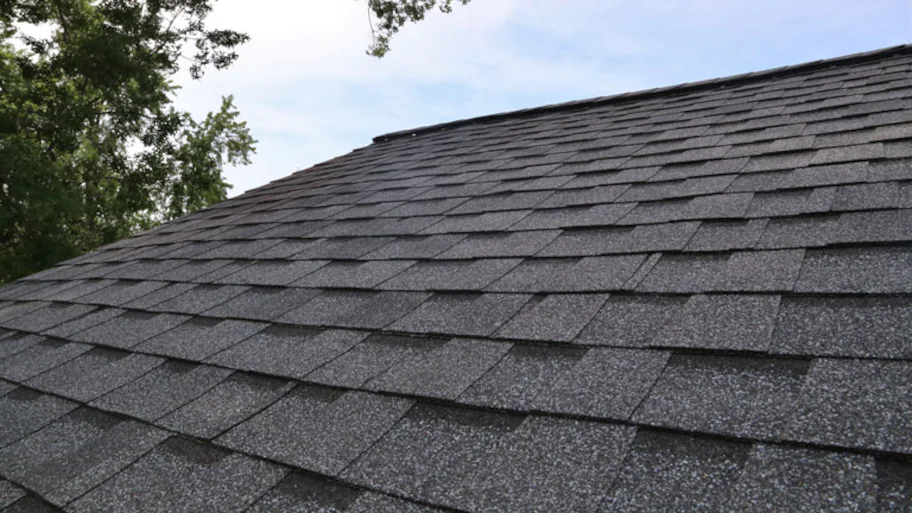
Knowing your home's roof underlayment replacement cost can help estimate the cost of roof replacement. Learn about the factors that affect prices.
A metal roof in Boston costs an average of $14,434 and comes with a typical range of $1,500 to $32,000. A pro roofer will assess roof size, pitch, and metal type to determine your total.


The size of your home and the type of metal you install are the most significant cost factors to consider.
Boston sees above-average rain and heavy snow, so hidden damage from water can add hundreds or thousands to your total.
Consider paying an additional $1,500 for snow guards to prevent damage to cars and landscaping below.
Many Boston homes have steep roofs to shed snow, which can complicate the installation and drive up costs.
Metal roof costs in Boston average $14,434, and most installations total between $1,500 and $32,000. The size of your home and the material you pick are the most significant cost factors. You should also consider investing more in thicker metal to resist denting from the occasional hailstorms in Boston. Many residents also pay an average of $1,500 more to add snow guards to reduce avalanches following heavy snowfall, which is common in the city.
Metal roof costs in Boston can sit as low as $7,156 and rise as high as $21,713. The following factors will determine where your total falls within that range.
Metal roofs cost an average of between $10 and $12 per square foot for materials and labor, so larger homes with bigger roofs to cover will cost more. A 1,200 square foot home needs 1,400 square feet of roofing, so re-roofing this size home in Boston would total between $14,000 and $16,800.
| Home Size (Sq. Ft.) | Average Cost Range |
|---|---|
| 1,000 | $13,000–$15,600 |
| 1,200 | $14,000–$16,800 |
| 1,500 | $18,000–$21,600 |
| 2,000 | $22,000–$26,400 |
| 2,200 | $25,000–$30,000 |

The average cost of $10 to $12 per square foot accounts mostly for coated steel roofs, which are the most common type of metal roof in Boston. Prices will be much lower for a more affordable metal like aluminum, and they can climb to $30 per square foot for a luxury option like copper.
| Type of Metal | Cost (per Sq. Ft.) |
|---|---|
| Aluminum | $4–$11 |
| Coated steel | $6–$16 |
| Copper | $15–$30 |
| Tin | $5–$12 |
| Zinc | $6–$12 |
You have some options when it comes to the style of metal roof you install, and the one you choose will have an impact on your costs. Standing seam metal roofs are the most popular in Boston and deliver good value, but they’re also the most expensive. Corrugated metal offers less curb appeal and a shorter lifespan, but reduces up-front costs. Consider both budget and long-term value when deciding between standing seam metal roofs, corrugated metal roofs, and metal shingles.
| Roof Style | Cost (per Sq. Ft.) | Pros | Cons |
|---|---|---|---|
| Corrugated | $3.50–$15 | Upfront cost | Curb appeal |
| Metal shingles | $7–$22 | Appearance | Most likely to leak |
| Standing seam | $7–$30 | Overall value | Upfront cost |
Metal roofs are available in a variety of gauges or thicknesses. Lower gauges, which are thicker, are more durable and less prone to warping from temperature changes. Boston sees hot summers and cold winters, which makes investing in a thicker metal roof gauge a good idea.
More importantly, the city sees occasional hailstorms, and thinner metal is more likely to dent from impact from hail. Investing in a thicker metal roof is usually a good idea in Boston, despite the higher material costs.
Boston sees heavy snowfall frequently, and it gets 1.5 times the national average amount of snow each year. Many roofs in the metropolitan area have steeper roofs that can shed snow more easily and reduce the risk of structural damage from heavy accumulation.
Steeper roofs make roof replacement more challenging, though, so your price could be higher if you have a steeper roof than normal. Expect to add a few hundred dollars to your total if your metal roofer needs to work on a steep pitch.
Boston gets above-average rainfall and snowfall, and all of that moisture makes roof leaks more common and the resulting damage more extreme. If your roofer finds water damage or mold growth under your old roof, you may need to add a few hundred or even a few thousand dollars to your total to account for unexpected repairs.
Metal roofing is extremely durable over the long term for protection against snow, ice, hail, and extreme weather too.
With that heavy and frequent snowfall in the city, you may want to consider installing snow rails on your metal roof, which help prevent large chunks of snow and ice from sliding off of your roof and causing injury or damage to vehicles and landscaping features below. Snow rails cost an average of $1,500.
When you hire a roofer in Boston to install your metal roof, 50% to 60% of the total, or between $7,200 and $8,700, will go toward the labor. This seems like a high cost to pay, but hiring a pro will ensure maximum curb appeal and also reduce the risks of future leaks. Remember that Bostonites have an increased risk of roof leaks due to the above-average precipitation, so hiring a pro is always worth it.
Those labor costs typically include permit fees for roof replacement, which are unavoidable, even if you install your metal roof yourself. The City of Boston charges a $20 base fee plus $10 for every $1,000 in total project costs. With the average metal roof cost in Boston sitting at $14,434, your permit fee will average $170. Be sure to ask your roofing pro if the permit fees are included in their initial estimates.
A new metal roof will increase your home value for two main reasons. First, it improves curb appeal and gives potential buyers a better first impression when viewing your home. Second, buyers are often willing to pay more for a home that’s unlikely to present problems and require repairs shortly after closing, and a new metal roof will mean both things for buyers.
Metal roofs provide an average ROI of 50%, meaning installing one in Boston would increase home value by an average of $7,200.
Home is the most important place on earth, which is why Angi has helped more than 150 million homeowners transform their houses into homes they adore. To help homeowners with their next project, Angi provides readers with the most accurate cost data and upholds strict editorial standards. We’ve surveyed thousands of real Angi customers about their project costs to develop the pricing data you see, so you can make the best decisions for you and your home. We pair this data with research from reputable sources, including the U.S. Bureau of Labor Statistics, academic journals, market studies, and interviews with industry experts—all to ensure our prices reflect real-world projects.
Want to help us improve our cost data? Send us a recent project quote to [email protected]. Quotes and personal information will not be shared publicly.
From average costs to expert advice, get all the answers you need to get your job done.

Knowing your home's roof underlayment replacement cost can help estimate the cost of roof replacement. Learn about the factors that affect prices.

Torch down roofing costs are based on roofing materials and labor, among other factors. Read our guide to learn more about the costs of this flat roof material.

Architectural shingles cost is determined by project size, material quality, and roof condition. Find out how much they'll cost for your home.

The best types of roofing materials are tailored to the local climate, energy efficient, and well suited to the roof pitch.

Hot or humid attic? Installing roof vents can keep your home cooler and save on utility bills. Learn about roof ventilation systems, pros and cons, and more.

Roof sheathing is another name for the strong layer of wood boards that are attached to your roof’s framing. Learn how much roof sheathing costs in this guide.